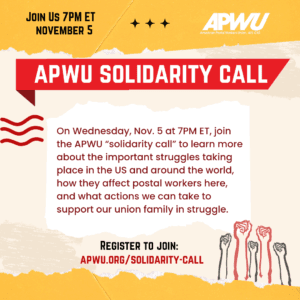April 16, 2015
National Day of Action Against Fast Track, TPP Set for April 18
Saturday, April 18, has been designated a National Day of Action to oppose a trade deal that would be terrible for working people: the Trans Pacific Partnership (TPP).
Click here for more information or to find an event near you.
The TPP has been devised behind closed doors, with the help of Wall Street and corporate lobbyists and has the support of the White House.
The negotiations are purportedly aimed at increasing international trade and investments by lowering tariffs and other trade barriers among participating countries.
But not much of the TPP actually addresses trade issues. Instead, TPP regulations would trump the laws of participating countries. That means, for example, that the TPP would erode our food safety standards by allowing foreign governments to initiate proceedings against the U.S. government if our food safety regulations limit the expansive rights investors are given under the agreement.
Congress is poised to ”fast track” this legislation, which would prevent legislators from amending the biggest trade deal since the North American Free Trade Agreement (NAFTA). Proponents of NAFTA claimed it would create 200,000 jobs in 1995 alone. In reality, 700,000 U.S. jobs were lost to Mexico.
The APWU opposes TPP and Fast Tracking, in accordance with a resolution adopted at the 22nd National Convention in July 2014. The APWU locals has been outspoken in opposition to fast track and the TPP.



